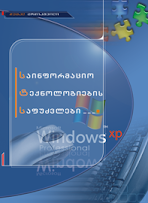ძირითადი სკოლა:
არ არის კლასიდან კლასში გადასასვლელი გამოცდები. გამოცდა არ ბარდება ასევე ძირითადი სკოლის დამთავრებისას.
არ გამოიყენება შიდა დიფერენციაცია სწავლებაში. არ მიესალმებიან ზოგიერთი საგნების გაძლიერებულ სწავლებას სხვა საგნების ხარჯზე.
აკრძალულია ელიტური კლასებისა და ელიტური სკოლების გამოყოფა. ფინეთში პრაქტიკულად ყველა სკოლა სახელმწიფო სკოლაა.
სახელმწიფოს მთავარი პრიორიტეტია ხარისხიანი განათლების თანაბარი მისაწვდომობის უზრუნველყოფა ყველასათვის.
საშუალო სკოლა:
ძირითადი სკოლის დამთავრების შემდეგ მოსწავლეს ეძლევა საშუალება აირჩიოს სწავლის გაგრძელება ან გიმნაზიაში, ან პროფესიულ სასწავლებელში. გიმნაზიაც და პროფესიული სასწავლებელიც სრულ სახელმწიფო უზრუნველყოფაზეა.
სწავლებაის ვადა საშუალო სკოლაში შეადგენს 3 წელს. საშუალო სკოლის დასრულებისას მოსწავლეები აბარებენ გამოსაშვებ გამოცდას. ეს არის ერთადერთი სასკოლო სახელმწიფო გამოცდა.
უმაღლესში ჩარიცხვა დამოკიდებულია არა გამოსაშვები გამოცდის შედეგებზე, არამედ მისაღებ გამოცდის შედეგებზე, რომელსაც ყველა უმაღლესი თვითონ ატარებს.
მაღალია მასწავლებლის პროფესიის პრესტიჟი, რაც გამოიხატება მის ხელფასში.
სკოლებში მნიშვნელოვანი როლი აკისრიათ ფსიქოლოგებსა და სოციალურ მუშაკებს.
მასწავლებლისა და მოსწავლის შეფარდება ძირითად სკოლაში შეადგენს 1/15, ხოლო საშუალო სკოლაში 1/18. პრიორიტეტი ენიჭება მცირე ჯგუფებში მუშაობას.
მასწავლებელს აქვს ძალიან დიდი უფლებები და დიდი ნდობა. მას შეუძლია ჩაატაროს ან არ ჩაატაროს გამოცდები, აირჩიოს შეფასების ნებისმიერი სისტემა ან საერთოდ უარი თქვას ბალებით შეფასებაზე. მასწავლებელს აქვს შემოქმედების სრული თავისუფლება.
თუ შევადარებთ ჩვენ განათლების სისტემას ადვილად აღმოვაჩენთ, რომ ჩვენთან ბევრი რამ ფინეთის სისტემის საპირისპიროა.
ძირითადი განსხვავებაა - უნდობლობა მასწავლებლის მიმართ, სკოლების დიფერენციაცია ”პრესტიჟულ” და ”არაპრესტიჟულ” სკოლებად, შეიძლება ითქვას, რომ ბავშვებიც დიფერენცირებულია ”პრესტიჟულებად” და ”არაპრესტიჟულებად”, განათლების სამინისტროს დომინირებული როლი.
ჩემი აზრით სწორედ ეს არის განათლების დაბალი ხარისხის მთვარი მიზეზი, ბევრ სხვა მიზესთან ერთად.
11 February 2012
16 January 2012
10 Important Skills Students need for the Future
Sense-making. The ability to determine the deeper meaning or significance of what is being expressed
Social intelligence. The ability to connect to others in a deep and direct way, to sense and stimulate reactions and desired interactions
Novel and adaptive thinking. Proficiency at thinking and coming up with solutions and responses beyond that which is rote or rule-based
Cross-cultural competency. The ability to operate in different cultural settings
Computational thinking. The ability to translate vast amounts of data into abstract concepts and to understand data-based reasoning
New-media literacy. The ability to critically assess and develop content that uses new media forms and to leverage these media for persuasive communication
Transdisciplinarity. Literacy in and ability to understand concepts across multiple disciplines
Design mind-set. Ability to represent and develop tasks and work processes for desired outcomes
Cognitive load management. The ability to discriminate and filter information for importance and to understand how to maximize cognitive functioning using a variety of tools and techniques
Virtual collaboration. The ability to work productively, drive engagement and demonstrate presence as a member of a virtual team
Social intelligence. The ability to connect to others in a deep and direct way, to sense and stimulate reactions and desired interactions
Novel and adaptive thinking. Proficiency at thinking and coming up with solutions and responses beyond that which is rote or rule-based
Cross-cultural competency. The ability to operate in different cultural settings
Computational thinking. The ability to translate vast amounts of data into abstract concepts and to understand data-based reasoning
New-media literacy. The ability to critically assess and develop content that uses new media forms and to leverage these media for persuasive communication
Transdisciplinarity. Literacy in and ability to understand concepts across multiple disciplines
Design mind-set. Ability to represent and develop tasks and work processes for desired outcomes
Cognitive load management. The ability to discriminate and filter information for importance and to understand how to maximize cognitive functioning using a variety of tools and techniques
Virtual collaboration. The ability to work productively, drive engagement and demonstrate presence as a member of a virtual team
ტეგები:
21 საუკუნის უნარები
Subscribe to:
Comments (Atom)






